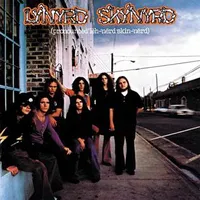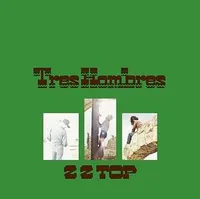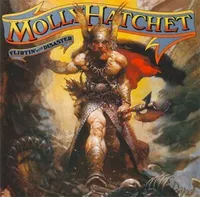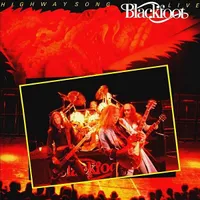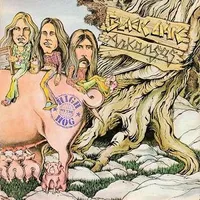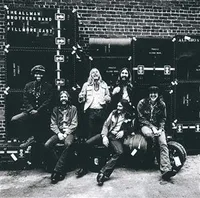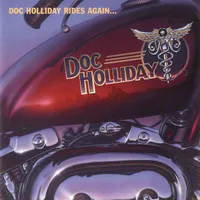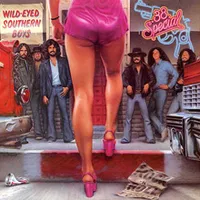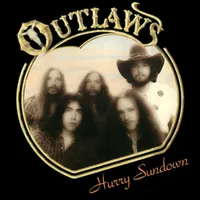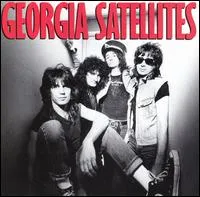10 Southern rock albums you should definitely own
If gunslingers were musicians they'd play Southern rock, and these are 10 Southern rock albums you need in your arsenal
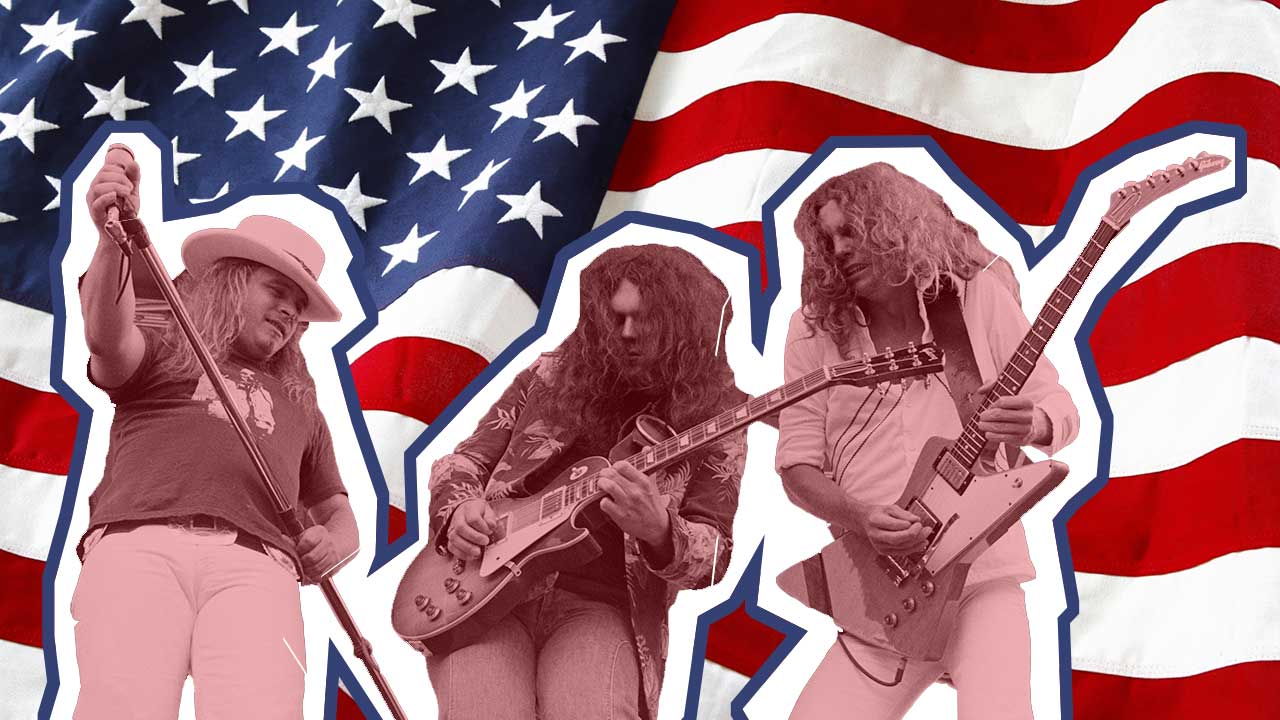
Select the newsletters you’d like to receive. Then, add your email to sign up.
You are now subscribed
Your newsletter sign-up was successful
Want to add more newsletters?

Every Friday
Louder
Louder’s weekly newsletter is jam-packed with the team’s personal highlights from the last seven days, including features, breaking news, reviews and tons of juicy exclusives from the world of alternative music.

Every Friday
Classic Rock
The Classic Rock newsletter is an essential read for the discerning rock fan. Every week we bring you the news, reviews and the very best features and interviews from our extensive archive. Written by rock fans for rock fans.

Every Friday
Metal Hammer
For the last four decades Metal Hammer has been the world’s greatest metal magazine. Created by metalheads for metalheads, ‘Hammer takes you behind the scenes, closer to the action, and nearer to the bands that you love the most.

Every Friday
Prog
The Prog newsletter brings you the very best of Prog Magazine and our website, every Friday. We'll deliver you the very latest news from the Prog universe, informative features and archive material from Prog’s impressive vault.
Define ‘Southern rock’. Go on, give it a try. It seems simple, but it’s actually as tough as attempting to define the whole rock genre. But there's one thing we can say with certainty: It's an American phenomenon. There have been bands from elsewhere who’ve turned their hand to this sort of music – ever heard Japanese hopefuls Idlewild South, named after the Allman Brothers album? – but they're largely unconvincing.
It also tends to be a preserve of the Southern states, mixing moonshine and blues, rednecks and country, notions of freedom and (in days passed, at least) an apparent affection for the Confederacy. And its roots could easily be traced right back to the birth of rock’n’roll itself.
For our purposes, it really began in the late 1960s, thanks to groups such as Creedence Clearwater Revival and The Allman Brothers Band, and reached a maturity of which Jack Daniels would have been proud with Lynyrd Skynyrd.
The core of Southern rock draws in bands such as Black Oak Arkansas, Blackfoot, Molly Hatchet, .38 Special and The Outlaws. It stretches towards true country music through The Charlie Daniels Band and The Marshall Tucker Band – hell, Willie Nelson is a patron saint of this irresistible force. It even touches on the forbidding fevered swamps of metal through Corrosion Of Conformity and Down, right on to the mania of Pantera.
Wherever you look in modern rock and metal, the hand of the South reaches out and provides an abiding influence. What do you think The Black Crowes would sound like without that input? Or Black Label Society? Or Kid Rock?
Southern rock, perhaps more than any other genre in the whole Classic Rock sphere, has remained resolutely unaltered by the passage of time. It’s still dominated by a testosterone-fuelled ambivalence to modern mores, and the wail of guitars looking for some fighting room.
Rather like the classic western movie, there’s something anachronistic yet charming about Southern rock. It has survived and flourished in its own environment for half a century, throwing up some of the greatest music and finest myths of our time, while more modern acts like Blackberry Smoke are vivid proof that the genre is much more than just a 50-year flash in the pan.
These are 10 Southern rock albums you need to own.

Lynyrd Skynyrd - Pronounced Leh-nerd Skin-nerd (MCA, 1973)
Almost all of Skynyrd’s pre-plane crash output could be regarded as essential, but it was their debut album that defined not only the band but in many ways the genre itself. No Southern group has ever matched what’s here in terms of musicianship, songs or sheer exuberance.
Ronnie Van Zant’s storytelling drawl, the gunslinging guitars, the easy swagger – it’s all written across songs such as Tuesday’s Gone, Gimme Three Steps and Simple Man. And as for Free Bird… while it might have been overplayed down the years, it’s undeniably one of the truly great pieces of rock music. A magnificent record.
ZZ Top - Tres Hombres (Warner Bros/London, 1973)
Are ZZ Top really a Southern band? The argument has raged down the years, but the truth is that while ‘The Li’l Ol’ Band From Texas’ may be slightly removed from the genre’s main highway, their shared musical legacy is undeniable.
There are some who’d regard 1983’s Eliminator as the trio’s most important record, but Tres Hombres is the one that saw their unique vision of blues, Cajun music, funk and hard rock – not to forget that humorous sense of the absurd – take root on a grand scale. It was songs such as Jesus Just Left Chicago, Beer Drinkers & Hell Raisers and, inevitably, La Grange that made the band a significant force.
Molly Hatchet - Flirtin’ With Disaster (Epic, 1979)
The second album from the Jacksonville band who seem to have been doomed to live out their career in the shadow of Lynyrd Skynyrd. Nevertheless, the group’s altogether more metal approach, allied to such monumental songs as Whiskey Man and Boogie No More, helped to make this their biggest seller in America.
The late Danny Joe Brown’s mountainous voice and their trademark triple-guitar frenzy gave Hatchet a real edge, both live and in the studio. And the unmistakable Frank Frazetta artwork also helped to get the band attention. They came close to matching the record on 1983’s No Guts… No Glory, but this is still their standout.
Blackfoot - Highway Song – Live (Atco, 1982)
British audiences fell in love with Ricky Medlocke and his bar-room associates when they supported the Scorpions here in 1980. Two years later, on the back of the Marauder album, the foursome returned to headline the UK – and recorded the event for this live album. With Native American blood flooding their veins, Blackfoot had their own slant on the Southern rock legend.
And it showed on truly spectacular performances of songs such as Every Man Should Know (Queenie), Train, Train and Dry County. But the best is saved for Highway Song, which stretches out like a road map to glory. Who loves ya, Blackfoot? The Brits did… and do.
Black Oak Arkansas - High On The Hog (Atco, 1973)
Afforded little respect outside of the States, Black Oak Arkansas were a joyous fusion of fleshpot feeding frenzy and hedonistically driven music, providing the soundtrack to much bra-strap fumbling in the back of daddy’s Cadillac.
They started in the mid-60s, but found their niche with this album, boasting a standout cover of the LaVern Baker classic Jim Dandy, plus the Funkadelic-inspired Swimmin’ In Quicksand and the nifty instrumental Moonshine Sonata. They also had frontman Jim ‘Dandy’ Mangrum, the hillbilly hot rod who was David Lee Roth before the Van Halen man had worked his way into spandex.
The Allman Brothers Band - At Fillmore East (Polydor, 1971)
One brother (Gregg) married Cher; the other (Duane) died in a motorcycle accident. Together the pair could lay claim to be the founding fathers of the Southern style. Forming their band in 1969, they were always at their best onstage, and this record captures the Allmans in their element.
Recorded during a series of shows at the famed Fillmore East club in March 1971, it’s not really a showcase for their songs; more an opportunity for them to let loose and interact, combining blue-collar energy with some outrageously confident musicianship. This is a stunning testament to the fluidity and diversity of the Allmans.
Doc Holliday - Rides Again (A&M, 1982)
Although they had a 10-year history by the time this, their second album, hit, many saw Doc Holliday as being the band most likely to take the Southern rock heritage into the 1980s. They were to let themselves down badly with 1983’s inconsequential Modern Medicine – Eliminator with no budget or brain – but Rides Again shows what might have been achieved.
It has all the trademarks of classic Southern rock, with Last Ride and Southern Man making their presence felt like moonshine at the back of the throat. And they also had the Free Bird-style epic Lonesome Guitar – a song that doesn’t suffer by comparison to that masterwork.
.38 Special - Wild-Eyed Southern Boys (A&M, 1981)
Dismissed by some as being a bit too commercial, .38 Special certainly had a smoother style than many in the genre, which might explain their comparative chart success.
Led by Donnie Van Zant, a younger brother of Ronnie, they got their first hit single from this album with Hold On Loosely, and the album itself – their fourth – went on to sell more than a million copies in the States, fuelled by such instantly accessible tracks as Honky Tonk Dancer and the title song. Neatly straddling AOR and Southern rock, the record was the artistic pinnacle of the band’s career. Sadly, Britain always remained immune to .38 Special’s charms.
The Outlaws - Hurry Sundown (Arista, 1977)
The third album from the Tampa band who brought a country style to their low-key hard rock. Interestingly, this was produced by Bill Szymczyk, who had worked extensively with The Eagles; that experience enabled him to develop The Outlaws’ vocal harmonies, a key part of their approach.
They also had three guitars, put to good use on Gunsmoke, while Hugh Thomasson brought out his banjo for So Afraid. The title track was something of a minor hit, but the true classic here is vocalist Billy Jones’s haunting Night Wines, which exposed a surprisingly depressed and fearful soul – a fragility not usually found in Southern rock’s macho expression.
The Georgia Satellites - Georgia Satellites (Elektra, 1986)
The Georgia Satellites set their own pace with their self-titled 1986 debut, which has enough chicken-scratch guitars to earn them a place here.
Although led off by a genuine one-hit-wonder in the swaggering Keep Your Hands To Yourself (a song more responsible than most for Nashville’s later use of loud guitars, and only kept off the top of the US chart by Bon Jovi’s Livin’ On A Prayer), the album was no one-trick pony. Railroad Steel bucked and boogied with the best, while ringing cover versions of The Woods’ Battleship Chains and The Faces’ Every Picture Tells A Story made sure the surprises kept coming.
Sign up below to get the latest from Classic Rock, plus exclusive special offers, direct to your inbox!
Malcolm Dome had an illustrious and celebrated career which stretched back to working for Record Mirror magazine in the late 70s and Metal Fury in the early 80s before joining Kerrang! at its launch in 1981. His first book, Encyclopedia Metallica, published in 1981, may have been the inspiration for the name of a certain band formed that same year. Dome is also credited with inventing the term "thrash metal" while writing about the Anthrax song Metal Thrashing Mad in 1984. With the launch of Classic Rock magazine in 1998 he became involved with that title, sister magazine Metal Hammer, and was a contributor to Prog magazine since its inception in 2009. He died in 2021.
